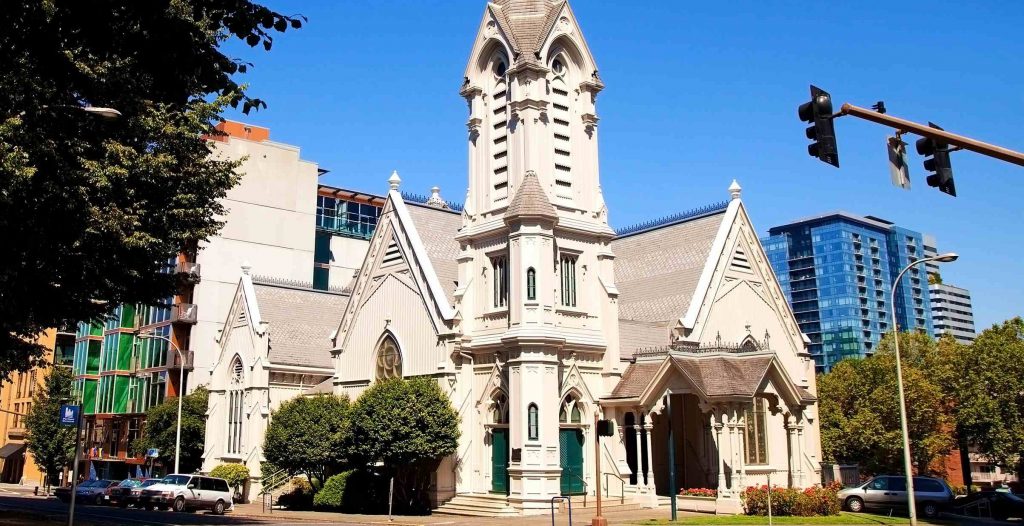In a day of declining attendance and finances, church leaders of all kinds are looking for new options as they consider the future of their ministries. Denominational staff and executives that are often concerned with an overwhelming number of churches that are struggling to find a way forward in our changing world.
Two Revived Churches
The Church of England and the British Methodist Church were two “churches” that faced such a future. A little over a decade ago, their future looked even starker than that of churches in the U.S. does today. Instead of the next technique or latest church growth fad, these two communities of faith decided to take the longer journey. They turned their focus toward re-establishing a missionary engagement with the surrounding culture at the core of their ministry practice.
Over these last 10-15 years is an important and significant tale of genuinely reaching unreached people. Existing congregations have experienced renewal in their own mission. Literally thousands of new expressions of church have been formed alongside and inter-related to these larger families.
As this movement has come to the US and we’ve had the opportunity to work with an increasing number of, usually regional, denominational bodies. We have come to see this denominational effort is incredibly important for at least three reasons.
The Real Options for Church Growth
In spite of all the wonderful conferences, events, and consultants available today, there are really only three ways any particular local congregation or regional denominational body can grow. The options in front of all churches are really quite simple and it’s important that we don’t overcomplicate these basic options.
Churches can:
A) Reach people who don’t know Christ, or at least, are not part of a church community
B) They can attract Christians/Church attendees who already have a relationship with another existing church
C) They can have more babies that grow up and stay within their church family.
Those are the options.
The only options.
The truth is that most churches choose strategies that result in option B, attracting attendees from other churches. The corresponding truth is that most churches will always lose at playing that game. After all, it’s a quickly shrinking pond.
The truth is that most strategies attract attendees from other churches.
Tweet this.
So, why not, while we still have time, go about the deeper work of helping our people engage as missionaries with their surrounding community?
Where the Missionaries are Hidden
Many inherited churches (our preferred term for what many call “traditional” churches) have a great gift to offer Christ’s mission task in our day. In actuality, this is where we will discover most of our potential missionaries.
Imagine if even a small handful of people within each congregation could catch a vision of starting a mission endeavor that resulted in reaching 20-40 people who are unlikely to darken the doors of most churches. Imagine if those people formed a community of faith that was very much “church” for them. Imagine if they didn’t see themselves as a replacement for the inherited church, but an important and related complement to it.
We are seeing, in increasing number, the many ways that these new expressions of church are inter-weaving with existing congregations. As a denominational leader, encouraging your church to grow the church among new people, instead of competing for attention among the shrinking pond, is probably a most strategic way forward. It also happens to align with the kingdom!
In most cases, this calls denominational families back to their history and beginnings. It’s striking when you turn back the annals of time how significant the “mission impulse” was in causing the formation of most of what we understand as denominations today.
It’s unlikely that even a full-scale revival of mission and new communities of faith would ever return denominational churches to the strength they knew 30-40 years ago. It is possible that a vibrant future exists in front of us for those willing to return in a new way to where they began.
The Denominations of the Future
Fresh Expressions are not an attempt to revive our denominations of the past. It is an attempt to revive the past of our denominations for the future.
Most of our inherited churches have the capacity to support these sorts of new endeavors for two very practical reasons. First, they normally don’t have an expensive mortgage or rent. They don’t have to give much attention to gathering as many people as possible into a situation where the offering plate can be passed.
Hidden missionaries? You'll find them by the handful in inherited churches.
Tweet this.
I don’t say this cynically. It is merely an observation after working with lots of church leaders. Often, finances are an underlying reason they cannot encourage a greater “scattering” of their members for mission. Who else is going to pay the bills?
As unstable as many established churches may feel, they are often more stable than a typical younger church. A newly started church has yet to develop a pattern of longevity or the tested capacity to move through difficult seasons. Just think of how many economic recessions most of our inherited churches have seen.
There are many other reasons that the movement around Fresh Expressions is significant for denominational leaders and churches. Certainly, there is plenty of room for non-denominational churches and independent Fresh Expressions in the forward advancement of God’s kingdom. Without the particular involvement of the majority of the church, we will come up far short of what could be possible.


